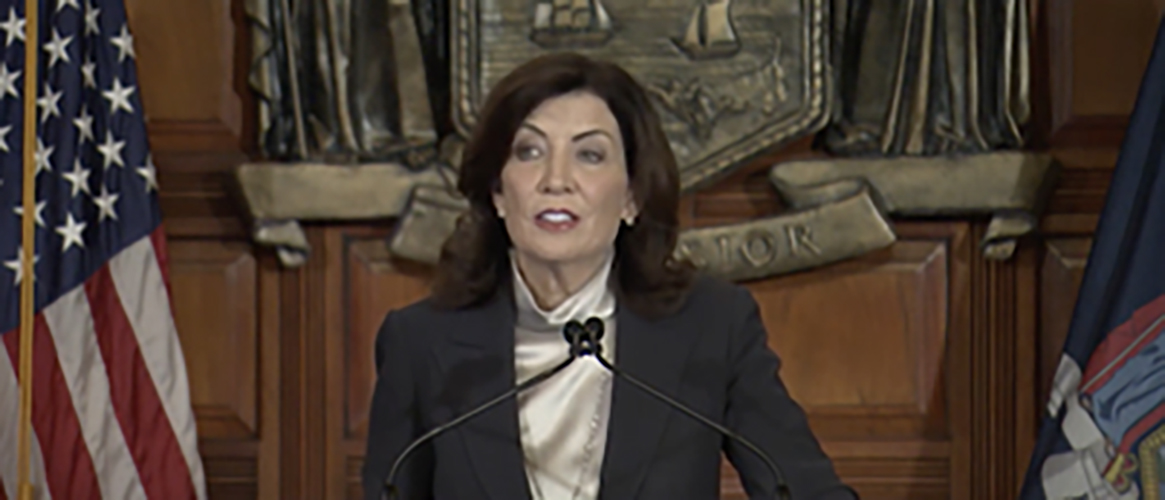PROSPECT HEIGHTS — Entering 2024, New York state will create a commission to consider reparations for African American residents.
Up against a Dec. 31 deadline, Gov. Kathy Hochul signed a bill on Dec. 19 to establish the panel. New York legislators originally passed the bill to create the commission back in June.
“Today, we are continuing our efforts to right the wrongs of the past by acknowledging the painful legacy of slavery in New York,” Hochul said in a statement announcing that she signed the bill. “We have a moral obligation to reckon with all parts of our shared history as New Yorkers, and this commission marks a critical step forward in these efforts.”
Dennis Poust, executive director of the New York State Catholic Conference, said he looks forward to “seeing where the commission’s work leads.”
“Slavery is our nation’s original sin, and New York has its own shameful history in this regard,” Poust told The Tablet. “While we have not taken a position on the legislation that Gov. Hochul has now signed forming the Reparations Commission, we look forward to seeing where the commission’s work leads and to the important yet difficult conversations it will provoke.”
Now that the legislation has been signed, the commission has one year from its first meeting to submit a written report of its findings and recommendations to the president of the State Senate, the speaker of the Assembly, the minority leaders of the Senate and Assembly, and the governor, according to the legislative text. Any recommendations made are nonbinding.
The commission members and first meeting date haven’t been announced.
The commission’s duties, as outlined by the legislative text, are to examine multiple layers of New York State’s involvement in the institution of slavery, including the extent of which it existed, the extent of which the federal, state, and local governments were involved, how the state engaged in the interstate transfer of those enslaved, and the discrimination against freed slaves.
Based on the findings, the commission is to recommend the appropriate remedies and reparations, which may or may not include financial compensation.
According to the bill, the first enslaved Africans arrived to the southern tip of Manhattan around 1627 and were integral in the development of New York City’s infrastructure without reaping the benefits of their work. It wasn’t until 1827 that the New York Legislature abolished slavery.
State Senate Majority Leader Andrea Stewart-Cousins, in a statement, thanked Hochul for “signing this transformative legislation into law.”
Speaker of the Assembly Carl Heastie called it a “momentous” occasion.
“Although we have come a long way from the institution of slavery, its remnants can still be felt and require more insightful thought and change,” Heastie said in a statement. “With the creation of the New York State Community Commission on Reparations Remedies, we can create legislative solutions and political structures that can make lasting impact.”
New York is one of the first states to formally consider reparations through legislation. The first was California; a reparations task force said in a report issued earlier this year that the state is responsible for more than $500 billion due to past racial injustices.
New Jersey and Vermont are two other states that have considered studying reparations, but neither has passed legislation. On the federal level, there hasn’t been much movement on anything reparations related; a decades-old proposal to create a commission to study reparations has repeatedly stalled in Congress.

